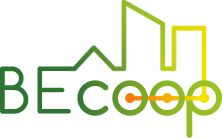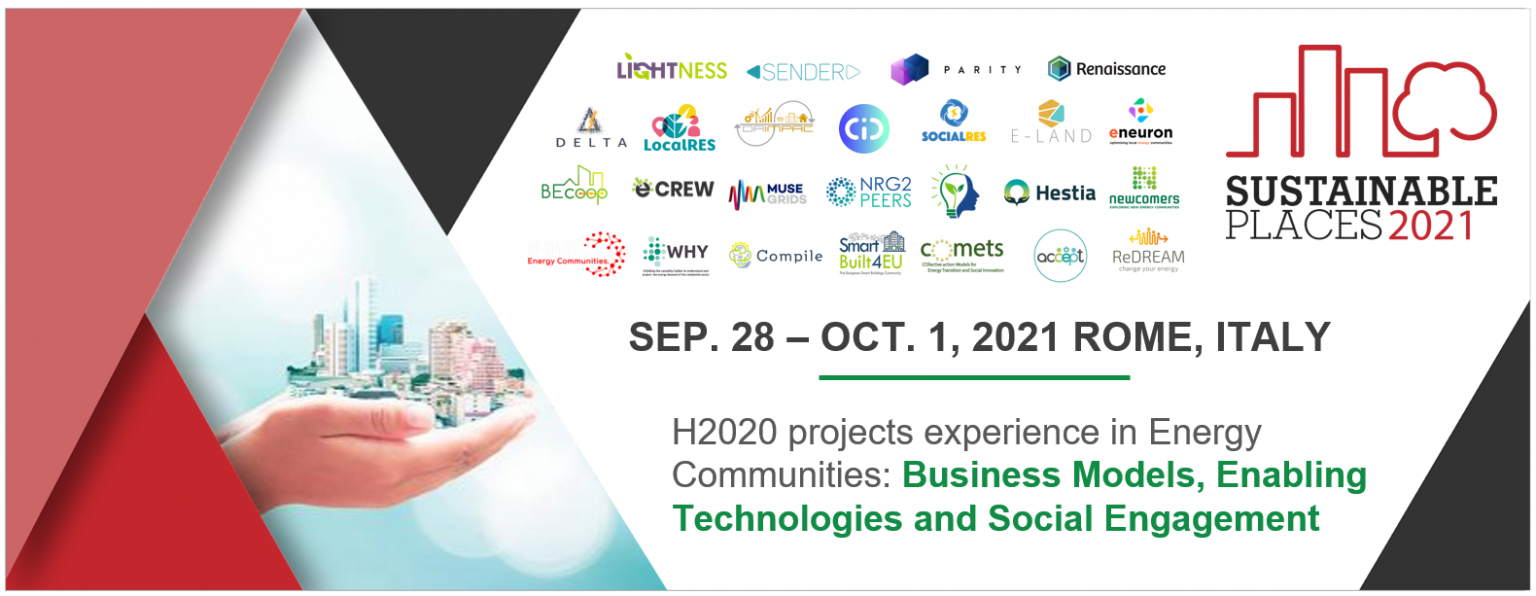BECoop, since the project started over a year ago, has at heart to engage with related initiatives and projects, to build on each other’s knowledge and resources. So far, a group of 13 projects has therefore emerged, also referred to as “sister projects”, which meet monthly to share results and draft potential collaboration ideas.
One of these ideas was a joint participation at the October Sustainable Places event, held both online and in Italy, which gathered specific sessions on energy communities (technologies, social aspects and business models).
The stream business models gathered H2020 BECoop, DECIDE, SocialRES, WHY, Drimpac, Newcomers and Compile, which shared a variety in the approaches, ideas, and insights.
The key takeaways, gathered by the session moderator, Sylvia Breukers from DuneWorks, include:
- There exist a variety of organisational forms: g. ESCOs; Social Housing associations; One-stop-shops(partnerships); merging of cooperatives with aggregator role
- There are many market opportunities:g Integrating supply and aggregation; Independent aggregators; Flexco (community self-balancing; P2P trading optimisation; flexibility pooling for higher level aggregator; collective self-consumption; flex services for TSO, DSO energy services for communities; energy services by communities).
- There are plenty governance arrangements for different types of ECs (DIY, Form an Alliance, Externally provided) and how these impact BMs (e.g. collective self-consumption; ESCo; VPP). These reflect different types of energy communities and can relate to the different types of ECs.
In terms of business models for energy communities, what should be noted – and here we can see where BECoop stepped in:
- Social partnerships (at local level, including government/public actors; other ECs);
- Municipal involvement
- Innovative financing (upfront investment costs are barriers, crowdfunding)
- Enabling exchange of knowledge, experiences, lessons learned (knowledge exchange platform, liaisons)
- Regulation–transposition into supportive local frameworks
- Resources in terms of knowledge, experience, time, relations
- Ownership (e.g. community ownership)
- Tools to self-assess opportunities
As was noted by Breukers, but also by most speakers, the work done around ECs business models seem to be at a starting stage, therefore there aren’t yet many examples of successful Energy Community BMs for ECs.
As ECs lack, mostly, financial and technical knowledge and resources, as well as administrative capacity, the need for appropriate / facilitating legislative and policy frameworks is here.
So what’s next? BECoop will organise several actions to pursue work in this matter (events, capacity building actions, awareness raising actions, development of tools, etc.) with the goal to be inclusive with all market stakeholders, showcasing the added value of (especially bio) energy communities, not only on financial aspects, but more broadly environmental, societal, etc.
Policy stakeholders will be involved to ensure the proper legislative/institutional framework, facilitating the journey to ECs, is put in place.
—————————————————————–
A joint publication followed the event, available for free on MDPI:
Breukers, S.; Schibline, A.; Pressmair, G.; Barnes, J.; Perrio, M.F.; Calatayud, E.P.; Rakocevic, L. A Business Model Fast Track on Energy Communities—Key Lessons Learned from H2020 EU Projects. Environ. Sci. Proc. 2021, 11, 19. https://doi.org/10.3390/environsciproc2021011019
To watch the full stream online (N.B, the full sessions on ECs social and technologies aspects are also available):

